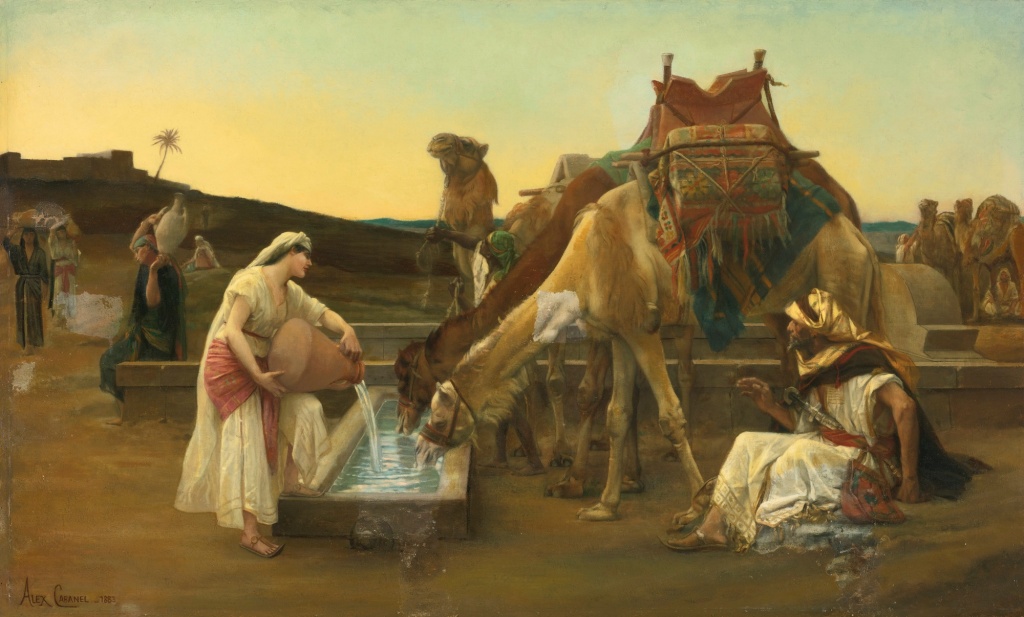I recently listened to an audiobook of the German translation of Michel Houellebecq’s controversial novel Soumission— which, as most readers will know, is about Muslim party taking power in France. I am working on a review, and have been checking my favorite passages in the French original. I hope to complete the full review soon, but in the mean time here is a rough translation of some passages in which Houellebecq discusses distributism. The main objective of the new government is to strengthen the family, and for this purpose they turn to distributism:
Apart from this superficial agitation, France was in the midst of rapid development and profound change. It soon became clear that Mohammed Ben Abbes [the new Muslim president of France] had other ideas apart from Islam; in a press conference he declared to general astonishment that he was influenced by distributism. Actually he had already mentioned this multiple times during his campaign, but since journalists are very naturally inclined to ignore information that they cannot understand, these statements were not passed on to the public. This time he was the sitting president of the republic so that it was necessary for them to bring their research up to date. And so the public learned over the next few weeks that distributism was an economic philosophy that had been developed in England at the start of the 20th century by thinkers such as Gilbert Keith Chesterton and Hilaire Belloc. It wanted to take a ‘third way’ between capitalism and communism (which it understood as state capitalism). Its basic idea was the overcoming of the division between capital and labor. The normal form of economic life was to be the family business. If certain branches of production required large scale organization, then everything was to be done to ensure that the workers were co-owners of their company, and co-responsible for its management. […] An essential element of political philosophy introduced by Chesterton and Belloc was the principle of subsidiarity. According to this principle, no association (whether social, economic or political) should have charge of a function that could be assigned to a smaller association. Pope Pius XI in his encyclical Quadragesimo Anno, provided a definition of this principle: “Just as it is gravely wrong to take from individuals what they can accomplish by their own initiative and industry and give it to the community, so also it is an injustice and at the same time a grave evil and disturbance of right order to assign to a greater and higher association what lesser and subordinate organizations can do.”
(Au-delà de cette agitation superficielle, la France était en train d’évoluer rapidement, et d’évoluer en profondeur. Il apparut bientôt que Mohammed Ben Abbes, même indépendamment de l’islam, avait des idées ; lors d’une séance de questions à la presse, il se déclara influencé par le distributivisme, ce qui plongea ses auditeurs dans un ébahissement général. Il l’avait à vrai dire déjà déclaré, à plusieurs reprises, au cours de la campagne présidentielle ; mais les journalistes ayant une tendance bien naturelle à ignorer les informations qu’ils ne comprennent pas, la déclaration n’avait été ni relevée, ni reprise. Cette fois, il s’agissait d’un président de la république en exercice, il devenait donc indispensable qu’ils mettent à jour leur documentation. Le grand public apprit ainsi au cours des semaines suivantes que le distributivisme était une philosophie économique apparue en Angleterre au début du xxe siècle sous l’impulsion des penseurs Gilbert Keith Chesterton et Hilaire Belloc. Elle se voulait une « troisième voie », s’écartant aussi bien du capitalisme que du communisme – assimilé à un capitalisme d’État. Son idée de base était la suppression de la séparation entre le capital et le travail. La forme normale de l’économie y était l’entreprise familiale ; lorsqu’il devenait nécessaire, pour certaines productions, de se réunir dans des entités plus vastes, tout devait être fait pour que les travailleurs soient actionnaires de leur entreprise, et coresponsables de sa gestion. […] Un des éléments essentiels de la philosophie politique introduite par Chesterton et Belloc était le principe de subsidiarité. D’après ce principe, aucune entité (sociale, économique ou politique) ne devait prendre en charge une fonction pouvant être confiée à une entité plus petite. Le pape Pie XI, dans son ency- clique Quadragesimo Anno, fournissait une définition de ce principe: «Tout comme il est mauvais de reti- rer à l’individu et de confier à la communauté ce que l’entreprise privée et l’industrie peuvent accomplir, c’est également une grande injustice, un mal sérieux et une perturbation de l’ordre convenable pour une organisation supérieure plus large de s’arroger les fonctions qui peuvent être effectuées efficacement par des entités inférieures plus petites.» [Soumission, pp. 201-202, 210])


Leave a reply to labreuer Cancel reply